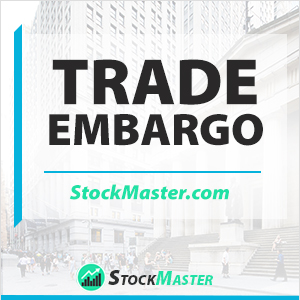 What is a Trade Embargo?
What is a Trade Embargo?
Definition: A trade embargo is an order issued by a government barring the entry of specific types of imports from a specific country. In other words, the government of one country may decide not to allow trade with another country for whatever reasons, usually as a result of their political disagreements or disputes.
The 2019 China-U.S trade war was quite disruptive and it is the type of situation that made headlines across the globe. The word “embargo” was tossed around so often but it is a business jargon that many people do not know its meaning but we are about to change that.
The trade embargo that the U.S placed on Huawei in 2019 courtesy of their trade war and antitrust issues is a great example.
The embargo outlawed the sale of Huawei phones by U.S carriers and it also meant that the Chinese smartphone manufacturer was also not allowed to bid for government contracts in the U.S. One of the characteristics of trade embargos is that they usually involve two parties, usually counties. One of the parties provides goods or services and of course, they get to make money from that. So, the country which receives the goods or services may opt not to provide a market to hurt the economy of the other country and force it to yield to its demands.
Types of Trade Embargo Examples
The U.S as a global superpower and the host of the global reserve currency is the power player in this case. Another great example is the trade embargo that the U.S placed on Cuba. The two countries have been locked in a conflict for decades. The two countries were locked in armed conflict from 1953 to 1958 and this forced the U.S to impose a trade embargo on Cuba, preventing the Caribbean country from purchasing firearms from the U.S.
The above type of embargo is not uncommon. It is usually put in place by most countries to prevent the sale of military weapons to some countries. Such a decision may come in handy towards discouraging countries from focusing too much on war and instead to focus on development. This is common in situations where developed countries try to steer or influence their relationships with developing countries.
Judging by historical situations, trade embargos may affect trade to the extent that the country implementing the embargo bans trading with another country completely. It can also be implemented in a manner that some type of goods is allowed while others are banned. The trade embargo that the U.S imposed on Cuba.
Trade embargos are commonly used to prevent the spread of weapons and other resources that may promote war. The U.S has historically been known to be trigger-happy when it comes to imposing trade embargos on its allies when they make deals or collaborate with its enemies. This also the case with countries that is closely associated with terrorist activities. Trade embargos are also used in the economic context where countries may disagree on trade tariffs as was the case with China and the U.S.
The impact of Trade Embargos
Powerful countries and governments use trade embargos to enforce some agenda that usually has an economic or political aspect. However, embargos usually have significant implications. For example, a country that has been hit with a trade ban may not manage to sell products that are affected by the embargo. The impact may be felt across the value chain and eventually lead to a disadvantage especially for the people that depend on the same of those products to earn a living.
In some cases, trade embargos may disrupt entire industries and even lead to job losses. This means that the trickle-down effect of a trade embargo might be so profound that it may affect the livelihoods of people. On the flip side, a trade embargo like that of the U.S may lead to a better trade deal which is more beneficial especially to the country that is importing the goods.
